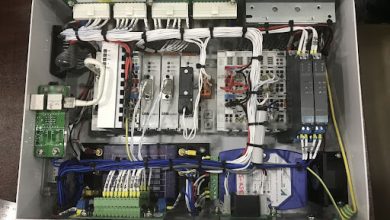Introduction
Key Stage 1 (KS1) marks a critical phase in a child’s educational journey in the UK, typically covering pupils aged 5 to 7 in Years 1 and 2. During this stage, children are introduced to core academic skills that form the basis for future learning. Among these, English literacy—which includes reading, writing, speaking, and listening—is one of the most essential. However, not all children progress at the same pace, and some may require extra help. This is where ks1 english tuition comes in.
KS1 English tuition provides personalised instruction outside the traditional classroom environment, tailored to each child’s individual needs. Whether your child is struggling with phonics, needs support in creative writing, or simply wants to stay ahead, tutoring offers a structured way to build confidence and mastery. In this article, we’ll explore what KS1 English tuition involves, its benefits, what to expect, how to choose the right tutor, and how parents can support learning at home.
Understanding KS1 English Curriculum
Before diving into the specifics of tuition, it’s helpful to understand what the KS1 English curriculum covers. The National Curriculum in England sets out the expected areas of learning and achievement:
Reading
-
Phonics and decoding: Using systematic synthetic phonics (like Letters and Sounds) to decode words.
-
Word recognition: Recognising common exception words (e.g., “the”, “said”).
-
Comprehension: Understanding what they read through discussion, prediction, summarising, and inference.
-
Reading fluency: Reading aloud with accuracy, appropriate pace, and expression.
Writing
-
Spelling and grammar: Learning how to spell age-appropriate words and understand basic grammar rules (nouns, verbs, adjectives, punctuation).
-
Sentence construction: Using capital letters, full stops, and forming complete sentences.
-
Handwriting: Writing legibly with correct letter formation.
-
Composition: Developing ideas, structuring writing, and sequencing events or instructions.
Speaking and Listening
-
Oral communication: Developing the ability to speak clearly, listen actively, and participate in discussions.
-
Vocabulary building: Learning and using new words appropriately in speech and writing.
Why KS1 English Tuition Is Beneficial
Although KS1 is designed to cater to a wide range of learning needs, some children require additional support or enrichment to reach their full potential. Here are the key benefits of KS1 English tuition:
Personalised Learning
Tuition offers a customised learning plan based on a child’s strengths and weaknesses. Whether your child needs help with phonics, comprehension, or spelling, a tutor can target specific areas for improvement.
Builds Confidence and Reduces Anxiety
Children who struggle in a classroom setting often feel anxious or fall behind. One-on-one or small group tuition provides a safe, supportive environment where they can ask questions freely and build confidence.
Reinforces School Learning
KS1 tuition reinforces what children are learning in school, helping them retain and apply knowledge. It also allows for extra practice and revision outside of classroom time.
Early Intervention for Long-Term Success
Literacy difficulties that go unaddressed at an early age can lead to wider academic challenges. English tuition at the KS1 level ensures early support, preventing learning gaps from growing.
Fosters a Love for Reading and Writing
A passionate tutor can inspire curiosity and joy in English. Through storytelling, games, and creative writing, children begin to associate learning with fun and success.
What to Expect from KS1 English Tuition
English tuition for KS1 students is typically structured in a child-friendly, engaging manner to hold young learners’ attention and motivate them. Here‘s what parents can usually expect:
Initial Assessment
Tutors often begin with a diagnostic assessment to identify the child’s current level, strengths, and gaps in knowledge. This forms the basis of the tuition plan.
Phonics-Focused Sessions
In Year 1, much of the focus is on phonic development—blending sounds, decoding unfamiliar words, and recognising tricky words. Tutors use flashcards, games, and songs to reinforce phonics learning.
Reading Comprehension
Children read age-appropriate texts aloud and answer questions to improve understanding. Tutors may also help with inference skills and discussing themes or characters in stories.
Creative Writing and Grammar
In Year 2, tuition often shifts towards sentence structure, spelling rules, punctuation, and story writing. Children are encouraged to build narratives, describe settings, and use new vocabulary.
Handwriting Support
Some children need help with fine motor skills and penmanship. Tutors guide them in correct pencil grip, letter formation, and writing fluently.
Regular Feedback and Progress Reports
Parents are usually kept in the loop with progress updates, feedback after sessions, and suggestions for how to support learning at home.
Online vs. In-Person KS1 Tuition
With the rise of digital learning platforms, KS1 English tuition is now available both online and in-person. Each method has its advantages:
Online Tuition
-
Convenient and flexible, especially for working parents.
-
Access to a broader range of tutors, including specialists.
-
Interactive tools (digital whiteboards, quizzes, reading apps).
-
Requires reliable internet and a quiet environment.
In-Person Tuition
-
Face-to-face interaction can be more engaging for young learners.
-
Easier to manage hands-on activities (e.g., handwriting practice).
-
Allows tutors to assess body language and behaviour more accurately.
Choosing the right format depends on your child’s learning style, personality, and home environment.
How to Choose the Right KS1 English Tutor
Choosing the right tutor is essential to ensure your child receives effective, enjoyable instruction. Here are factors to consider:
Qualifications and Experience
Look for tutors with primary teaching experience, particularly in KS1. Qualified teachers are familiar with the national curriculum, age-appropriate strategies, and assessment methods.
DBS Checked
Ensure the tutor has a valid Disclosure and Barring Service (DBS) check for working with children, particularly for in-person sessions.
Teaching Style and Rapport
A good KS1 tutor is patient, friendly, and creative. Watch how they interact with your child during a trial lesson—do they make learning fun and engaging?
Reviews and Testimonials
Ask for feedback from other parents or check online reviews. A reputable tutor will have positive testimonials and proven results.
Lesson Planning and Structure
Ask how lessons are planned and structured. Are they aligned with your child’s schoolwork? Is there a balance of reading, writing, and phonics?
Supporting English Learning at Home
Tuition is most effective when combined with supportive home practices. Parents play a crucial role in reinforcing literacy skills outside of sessions:
Daily Reading
Reading with your child daily builds vocabulary, comprehension, and bonding. Let them read to you and vice versa. Ask questions to check understanding.
Writing Practice
Encourage your child to keep a journal, write thank-you cards, or create short stories. Celebrate their writing efforts to build confidence.
Word Games and Apps
Use games like Scrabble Junior, Boggle, or online phonics apps to make learning fun. Phonics Play and Oxford Owl are excellent online resources.
Create a Reading-Friendly Environment
Fill your home with books, magazines, and storybooks. Have a special reading corner and take your child to the library regularly.
Positive Reinforcement
Celebrate small milestones—whether it’s mastering a tricky word or writing their first paragraph. Positive reinforcement keeps motivation high.
Common Challenges and How Tuition Helps
Here are some frequent KS1 English challenges and how tuition addresses them:
Struggling with Phonics
A tutor uses structured phonics programs and repetition to strengthen decoding skills.
Poor Spelling and Grammar
Tutors introduce rules through stories, games, and examples to make concepts stick.
Lack of Confidence in Reading Aloud
One-on-one reading sessions help children practice without judgment, gradually improving fluency.
Trouble Constructing Sentences
Through scaffolding techniques, tutors help children build up from simple to complex sentences.
Falling Behind Peers
Tailored lessons help close learning gaps and provide children with the tools to catch up and succeed.
When to Start KS1 Tuition
There’s no “perfect” time, but early intervention makes a huge difference. If your child:
-
Avoids reading or writing
-
Finds schoolwork confusing
-
Lags behind peers in spelling or comprehension
-
Has shown interest but needs extra challenges
…it might be time to consider tuition. Many parents also opt for short-term support around exam periods or school transitions (e.g., from Year 1 to Year 2).
Conclusion
KS1 English tuition is more than just extra help—it’s an opportunity to lay a strong foundation for your child’s academic journey. The first years of formal education are critical in shaping how children perceive learning. With the right guidance, personalised attention, and positive reinforcement, even the most reluctant readers can blossom into confident, articulate learners.
Whether your child needs support catching up or is eager to be challenged beyond the classroom, a skilled English tutor can make all the difference. When combined with a supportive home environment, KS1 tuition paves the way for lasting literacy skills—and a lifelong love of learning.




